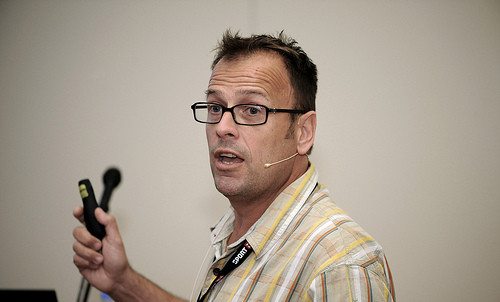‘Know more about Nuneaton than Man United’
Asports journalist has the best job in the world. Watch- ing sport and being paid to commentate or write on it? What could be better?
Unfortunately, only the very best get the opportunity to write for The Times or commentate on the World Cup final. So many dream of breaking into the industry, but find their path impeded by impregnable waves of competition.
One way to give yourself the best chance of “making it” is by doing substantial amounts of work experience.
But when there are so many people doing exactly that, how do you make yourself stand out from the crowd?
James Callow, formerly a sub-editor at The Guardian and now content editor for The Football Association, is unequivocal that you need to be able to sell yourself to an employer.
“You need to know where your strengths lie and to be specific,” he told me. “Are you a writer or into media research? People like specialists who are willing to learn other skills as they go along.
“Get as much experience as you can in the media industry itself. A blog is great for personal practice, but it doesn’t count nearly as much as working properly on a paper for a couple of weeks and getting your hands dirty.”
From personal experience, this rings true. I was fortunate enough to work at national publications The Guardian and FourFourTwo over the summer, but my local papers The Reading Post and The Henley Standard sent me off to places and made me feel like a proper journalist.
Not that experience with nationals is anything other than fantastic: it’s just important that, to quote the Sports Journalists Association (SJA), “don’t do two weeks somewhere and think you’re Martin Samuel. Do as much as you can in as many different places as you can.”
With this in mind, Callow emphasised the importance of getting to grips with different facets of sports journalism: namely, production and editorial skills.
“The chances of you getting a job on the production side is much higher than writing features,” he said.
“Show an interest in the nuts and bolts rather than just trying to copy Paul Hayward (chief sports correspondent at The Daily Telegraph, who wrote Sir Alex Ferguson’s autobiography).
Robert Baldock, who produces BBC Radio Coventry & Warwickshire’s live coverage of Coventry City matches each weekend and studied English Literature at Warwick, agrees that sports journalists should be realistic and acquaint themselves with local sport.
“Get as involved in sport at a local level as much as you can, because knowing about how Nuneaton Town line up is going to be more use to you when you’re starting out than a passing knowledge of Man United’s strikers will be,” he said.
“You need to be interested in small sports and discovering stories about ordinary sportspeople. That’s where you’ll get your journalism done.
“Never say no to any opportunity that comes your way at this early stage, even if it’s fetching the tea at the local paper.
“Be prepared to work for free with local media right now at university so you can prove your interest and get an advantage in a very competitive field.”
“Show an interest in the nuts and bolts rather than just trying to copy Paul Hayward from the Telegraph“
Another truism of contemporary journalism is that it is constantly changing. Print-only publications no longer exist as newspapers and radio stations move into the online sector.
Want to work purely in print? You may want to rethink. Modern sports journalists are forced to strike a balance between specialising in a chosen topic and being adaptable with their skill set.
“The media is converging all the time,” Callow admitted. “For example, The Guardian does increasing amounts of video and audio.
“A good knowledge of how these different components mould together is very useful.”
In other words, the modern sports journalist must have specialist skills, be willing to work in video and audio, accept ferocious levels of competition and do work experience everywhere.
Scary? No doubt about it. But as Callow attests, hard work and fortune reaps rewards.
“We have recently recruited a very junior member at the FA, and one of his first jobs was to go out to Estonia to cover the Under-17 World Cup – talking to the players, compiling match reports, you name it,” he smiled.
“It’s difficult to overestimate all the benefits that come with the job, but you’ve got to work hard to get there.”
The message is clear: it won’t be easy, but show some willingness and grit and a career in sports jour- nalism could well be for you.

Comments